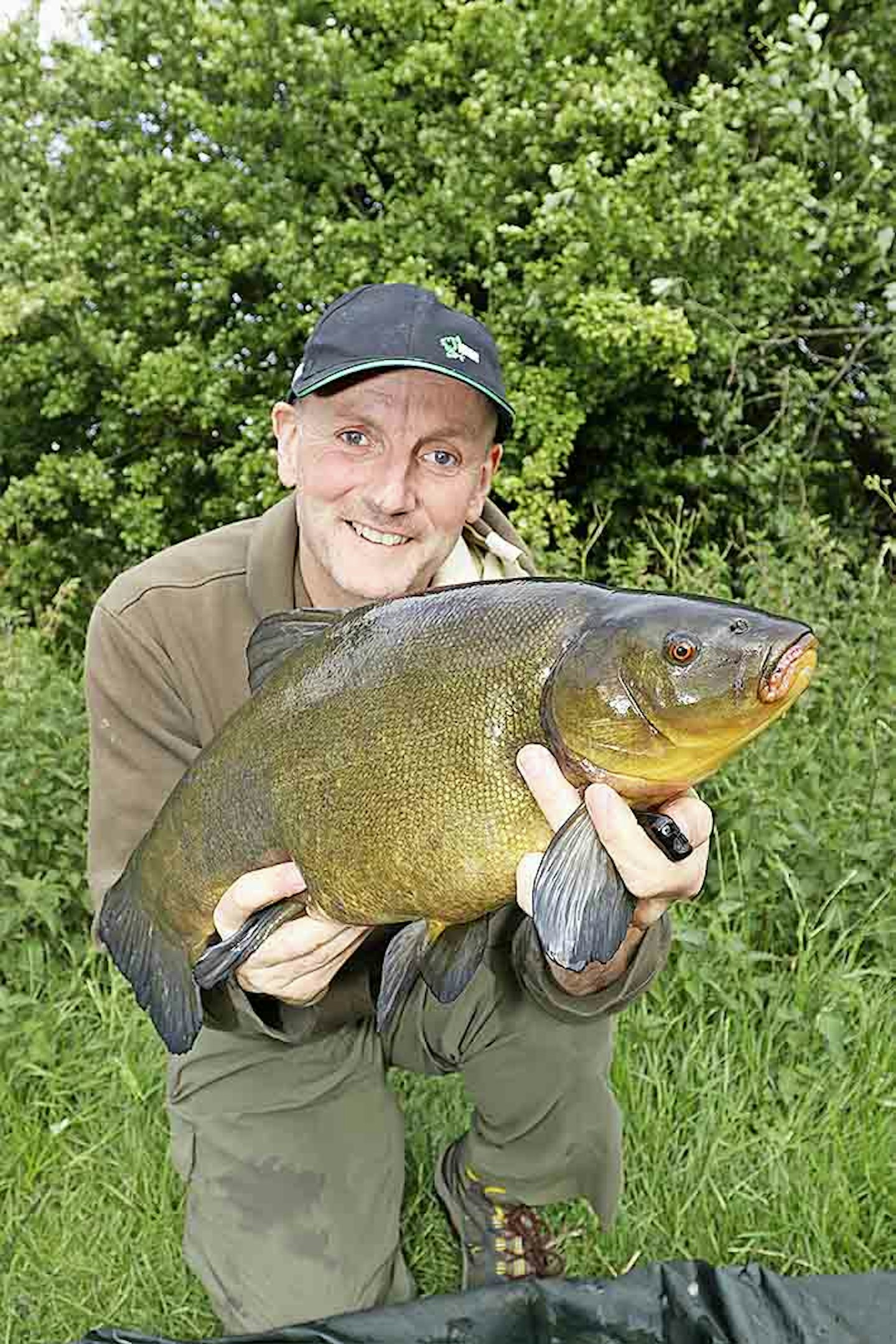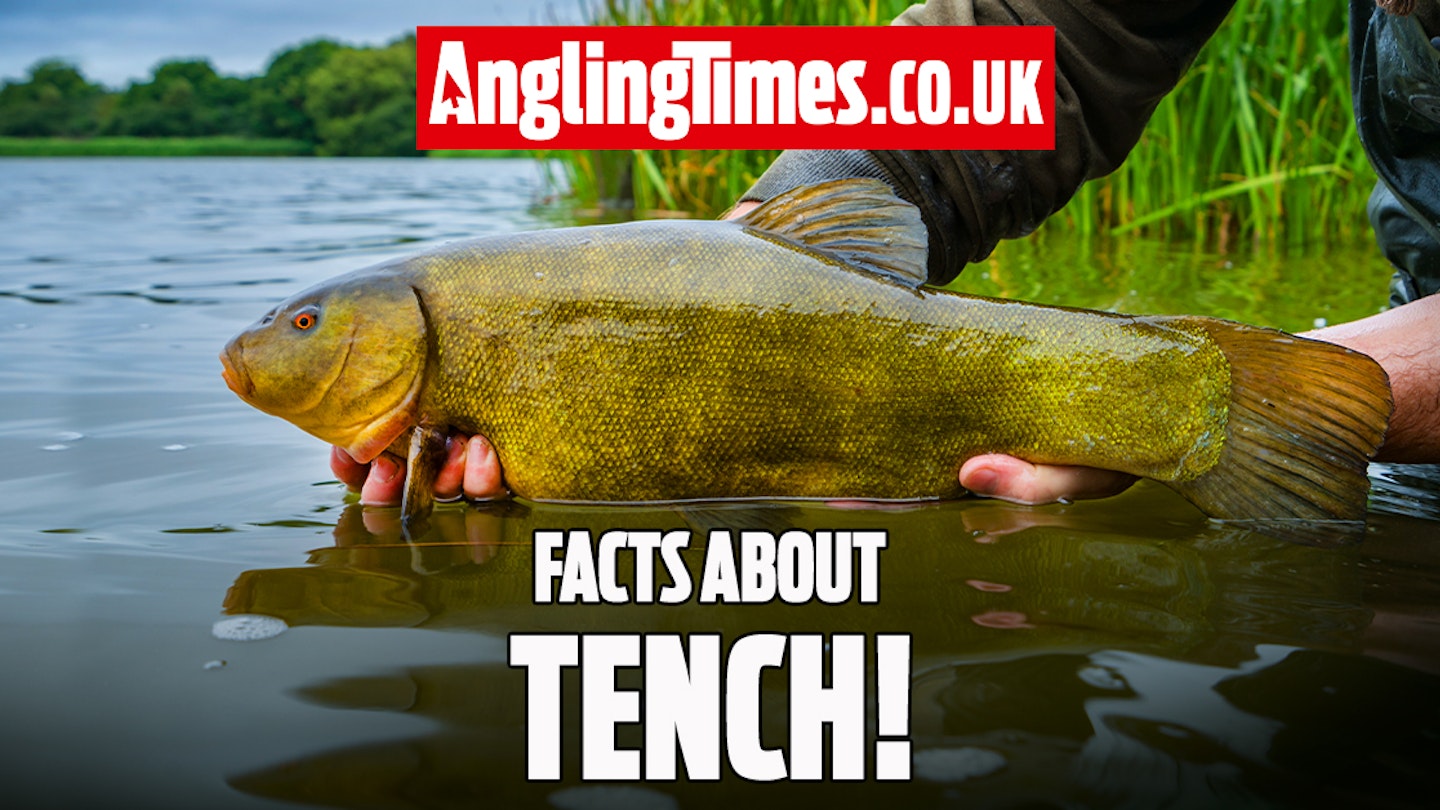They look unlike any other coarse fish, and have more myths and strange facts surrounding them than our other 40-odd main coarse species put together. Now fish biology expert Paul Garner answers the many questions often asked about tench…
Why are females so much bigger than males?
This is the case in most coarse fish. Females produce thousands of eggs, and the more they can produce, the better the chances of some of them surviving. Bigger females can produce more and bigger eggs than smaller ones, so it pays for females to be as big as the environment will allow. Sperm, though, are tiny, so males don’t have to be big to produce millions of them.
Why do they have red eyes?
This is just the pigment in the iris (much the same as roach having red eyes). It doesn’t influence what light frequencies they can see, and offers no advantage over normal iris colours.
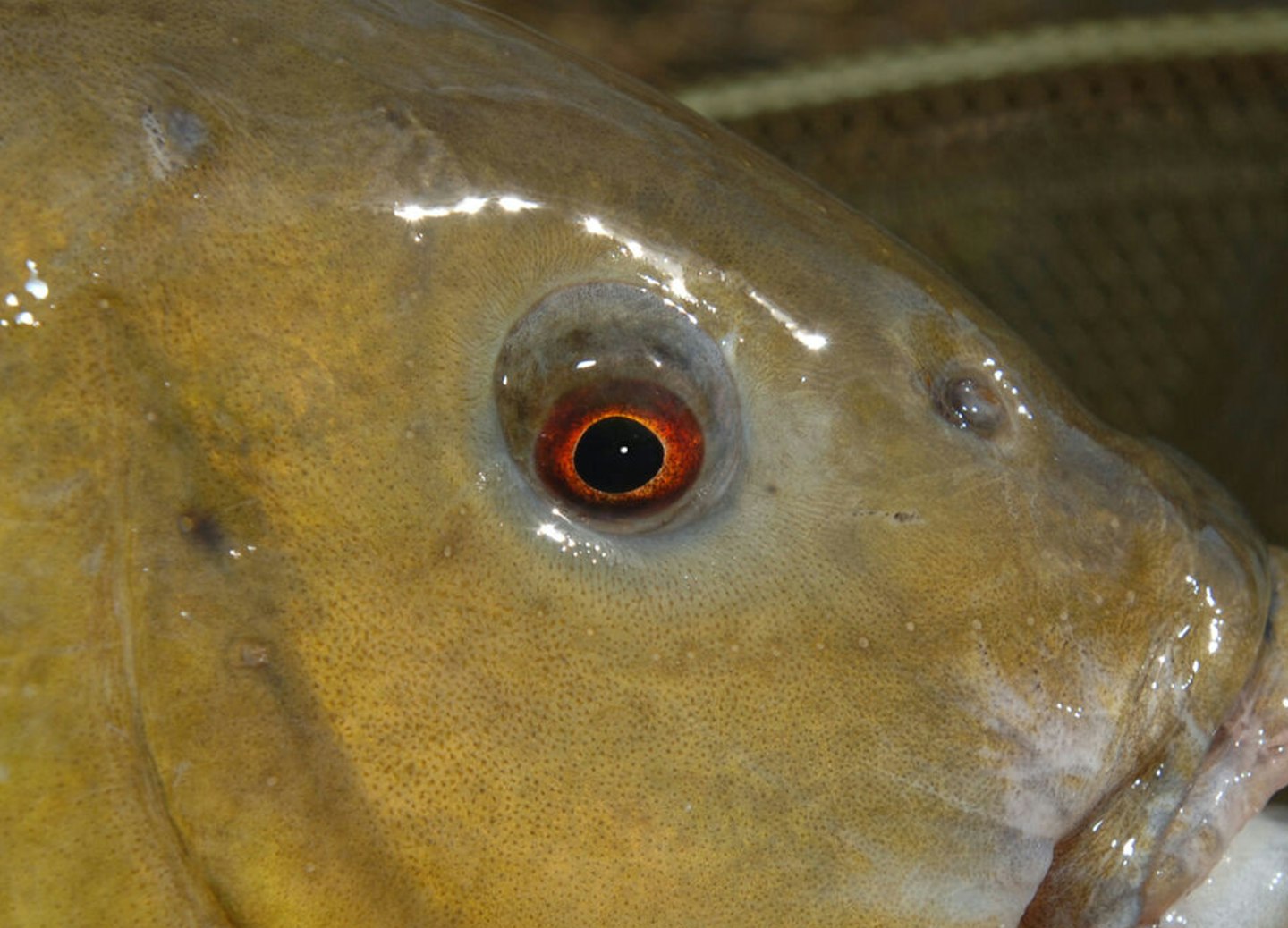
Does tench slime really have healing powers?
No. Their thick slime makes it easier for tench to live amid dense weed. They are less likely to pick up skin parasites, such as Argulus, because they cannot easily stick to the skin. The slime also helps stop damage to the scales.
Why do males and females have such different fins?
The large pelvics on the males probably give an advantage when spawning by directing the sperm more accurately when fertilising the eggs. Males compete to get as close to the ladies as possible while they release their eggs. The male that is closest will generally fertilise the most eggs, and so pass on its genes successfully to the next generation.
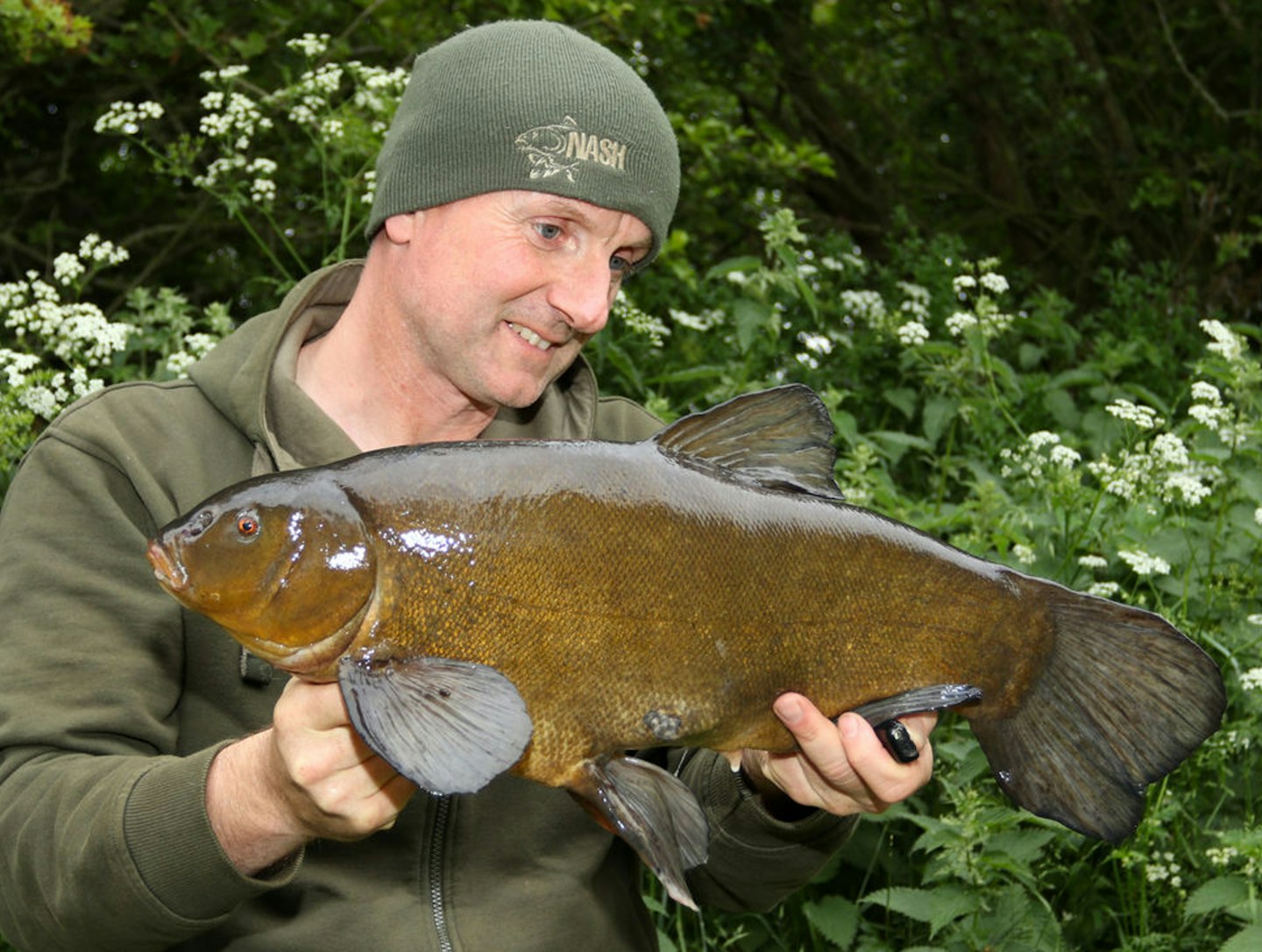
Why don’t tench hybridise with other species, as roach and bream readily do?
Tench have been hybridised with bream and carp in the lab, and some of the eggs will develop and hatch. They tend to die rather quickly, though, because they are quite deformed and don’t feed properly. Roach, rudd and bream are much more closely related to each other than tench on the evolutionary tree of life, which explains why they can hybridise more easily.
Do tench only feed on the bottom, and do they shut up shop in the cold?
Tench will come up and hunt invertebrates in midwater. That said, most of their diet is made up of small invertebrates (bloodworm, snails and caddis larvae) that they pick up off the bottom. They won’t stop feeding altogether in winter, but their metabolism slows down, and they will only need to feed every few weeks. They will also find some thick cover and make this their winter home, only emerging after dark much of the time.
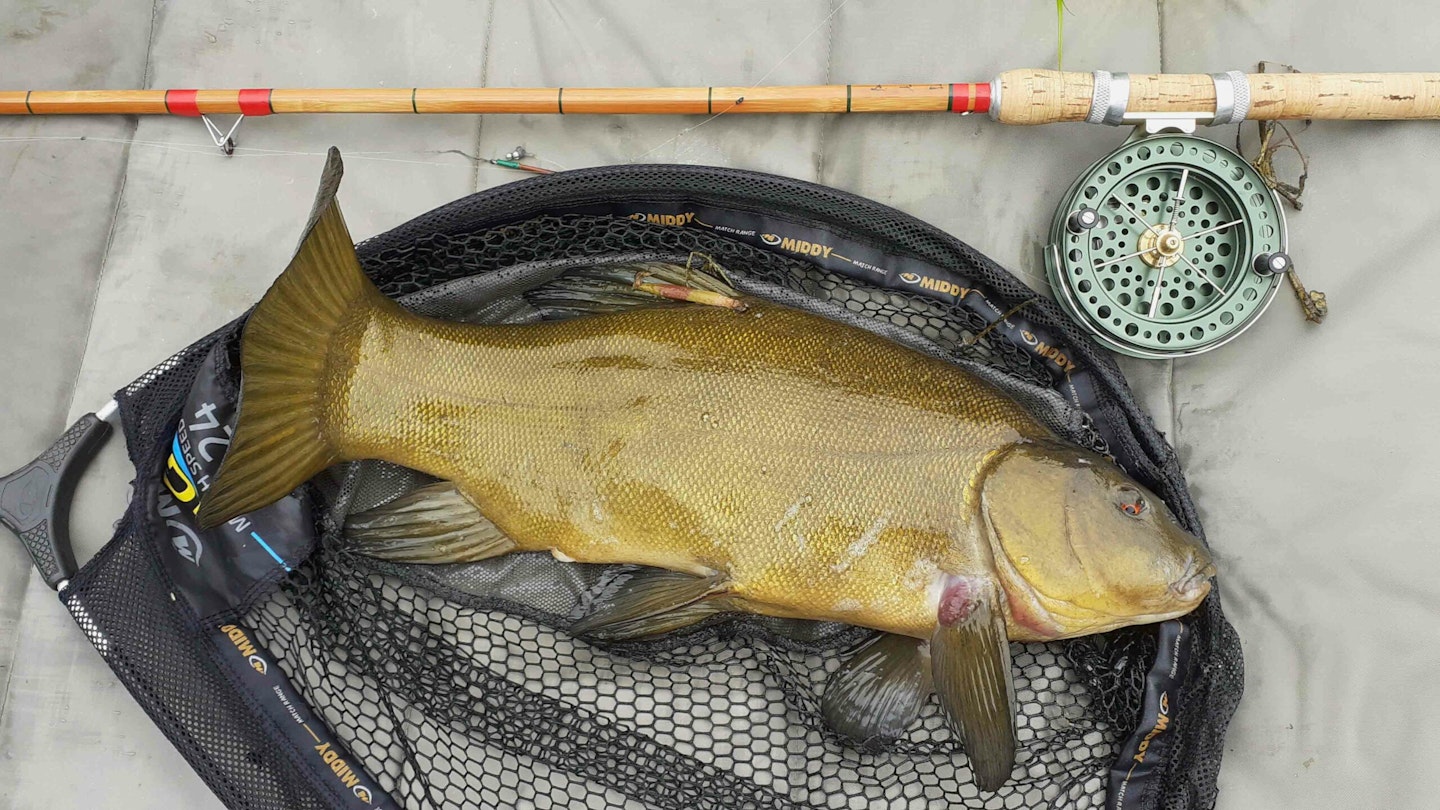
Do they have scales?
Yes, although they are small and difficult to remove. This helps tench to live in dense cover, which is a great anti-predator strategy. They are also well hidden from herons, thanks to their colour and the dense weedbeds that they live in. Tench naturally live in oxbow lakes and pools along the margins of large lowland rivers (although we have virtually no examples of this habitat left in the UK thanks to river ‘management’). These shallow, often clear, pools offer the fish a very good defence against being eaten.
Here's some waters where you will find a good head of tench.
Why do tench spawn later than other species?
This probably has something to do with the abundance of weed. It makes sense, if you spawn in dense weed and your young spend their first few years in weed hiding from predators, to spawn when the weed is already well established for the year. The downside of this is that the fish then have a shorter growing time throughout the summer to grow large enough to overwinter successfully.
Is it true that they feed best at dawn?
Sometimes, but not always. Bigger tench can often be caught during the day, particularly on gravel pits, which suggests that they are at little risk of being eaten themselves. They will often feed at night in the winter, indicating that they change their behaviour to feed when light levels are lowest, and they are more able to avoid predators like herons. At dawn and dusk many larval invertebrates are more active, often rising to the surface to emerge as adults, or moving around on the bottom to feed. They are less likely to be eaten when light levels are low, especially if millions of them do the same thing, so they make use of the low light to synchronise their behaviour. The tench, in turn, time their behaviour to feed when natural food can be most easily caught.
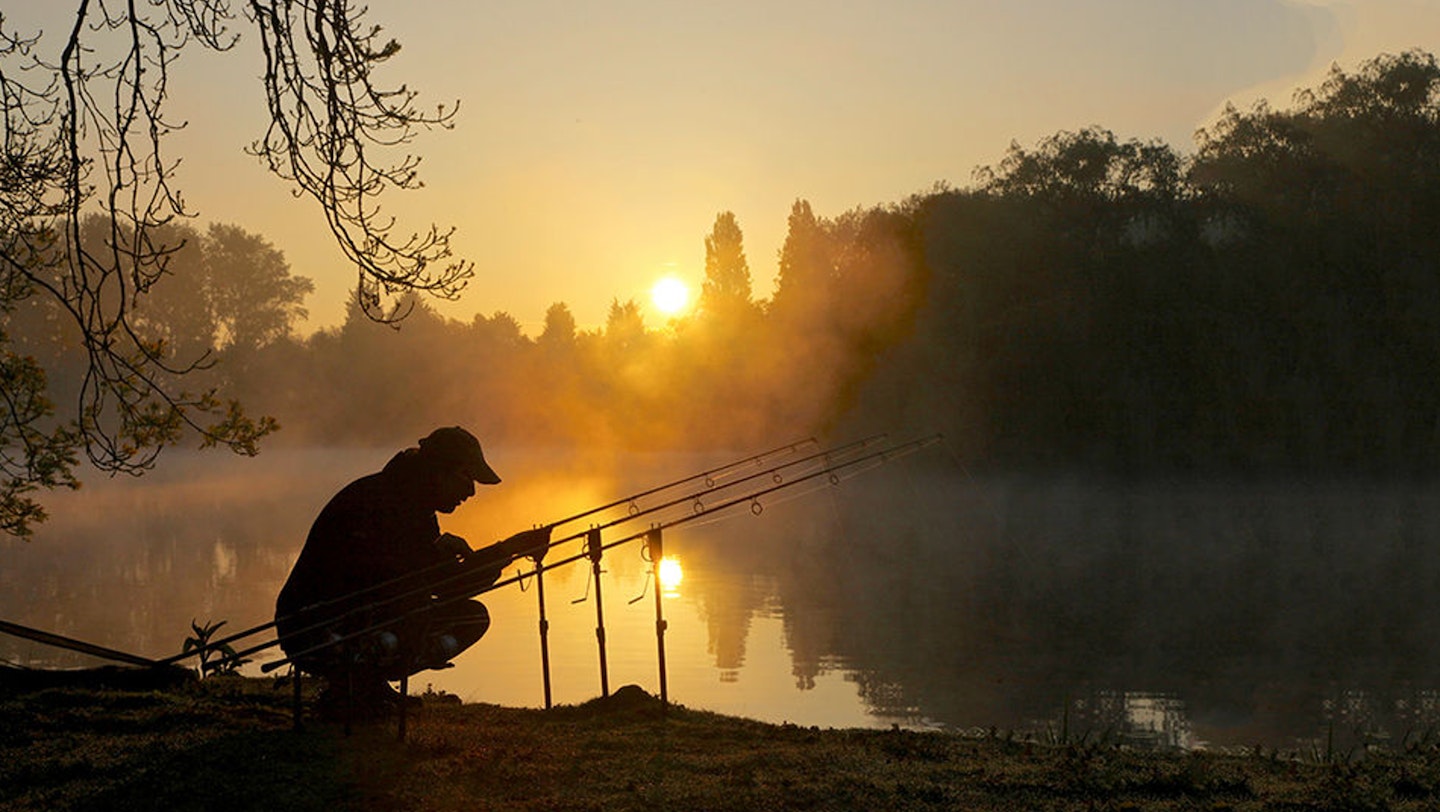
Can tench stand pollution better than other fish?
It depends on the type of pollution. If it is deoxygenation, which is often not caused by pollution as such, then they will survive better than some other fish. Once again this comes down to their natural environment. Tench have evolved to live in shallow, warm, muddy pools along the edges of big rivers. These pools might only be connected to the river in times of flood. The rest of the time they are cut off and can become quite stagnant, so tench (and crucians) have to be able to cope with low oxygen levels, high concentrations of carbon dioxide, and high temperatures, better than many other fish.
Do tench have rigid patrol routes?
There has been quite a bit of radio-tracking of tench, mainly in natural lakes, and it hasn’t really shown that they follow the same patrol routes day after day, although they do have preferred areas and will use the same routes to move around a venue. This often coincides with variations in depth, or bottom composition. They have a clear memory map of the layout of a venue and can move around it using reference points underwater, such as gravel bars. It’s worth noting that they will tend to move along features where there is a change in depth, rather than move over them.
I’ve never caught a tiny tench – where do they go?
Tiny tench live amid very dense vegetation and very rarely come out until they get to a pound or two. I’ve electrofished dense weedbeds and you often get very small tench popping up. This is weed so dense and often so close to the bank that it seems impenetrable. If they are stocked into fisheries with no weed they will get caught, as they can’t hide themselves away.
Here's some great tips on catching tench.
